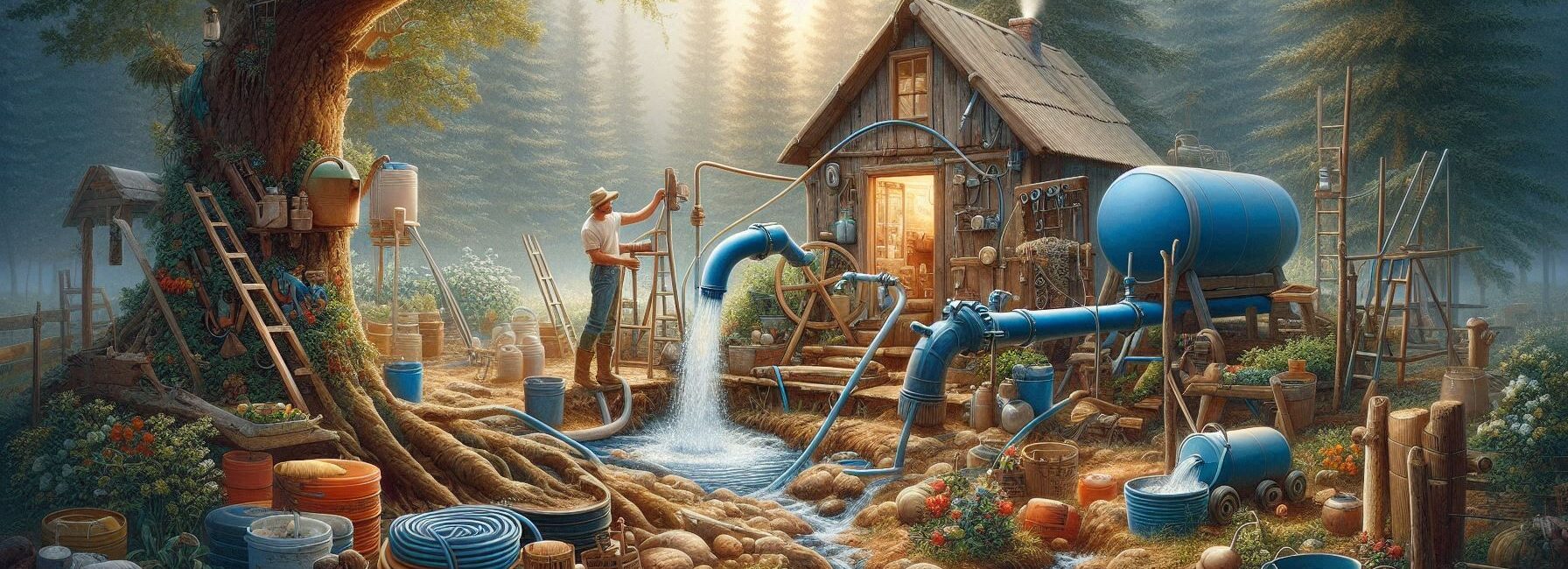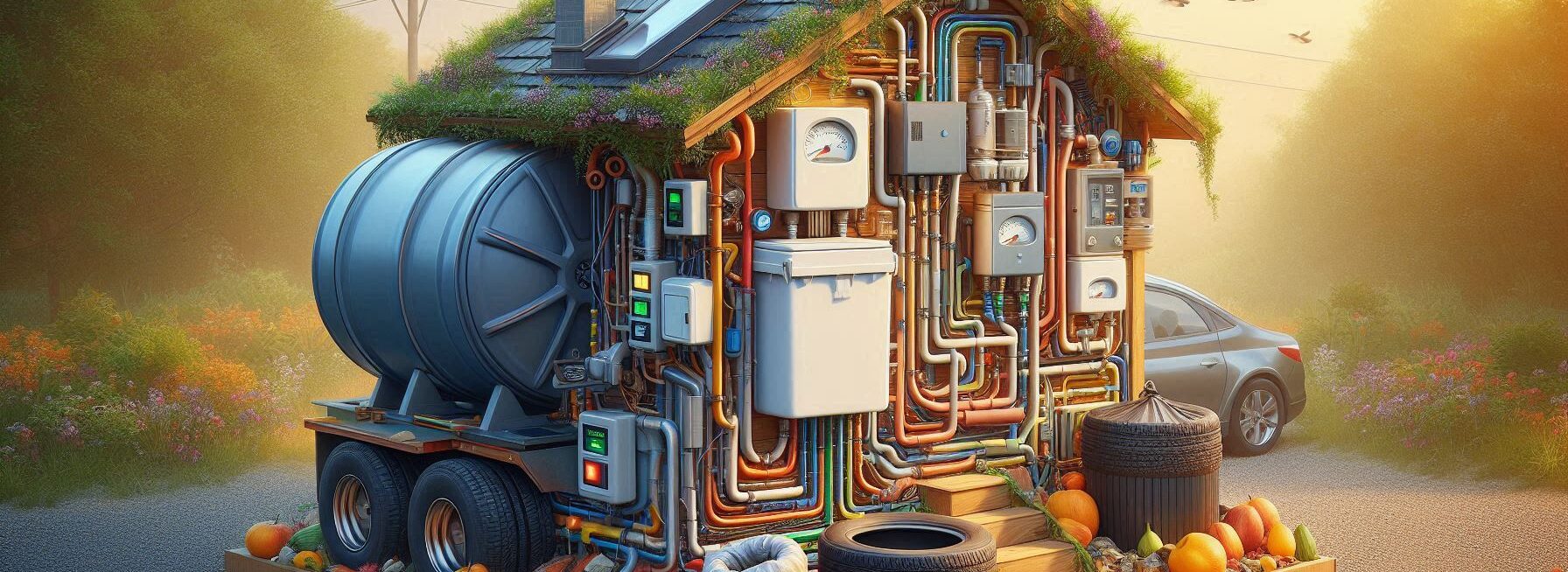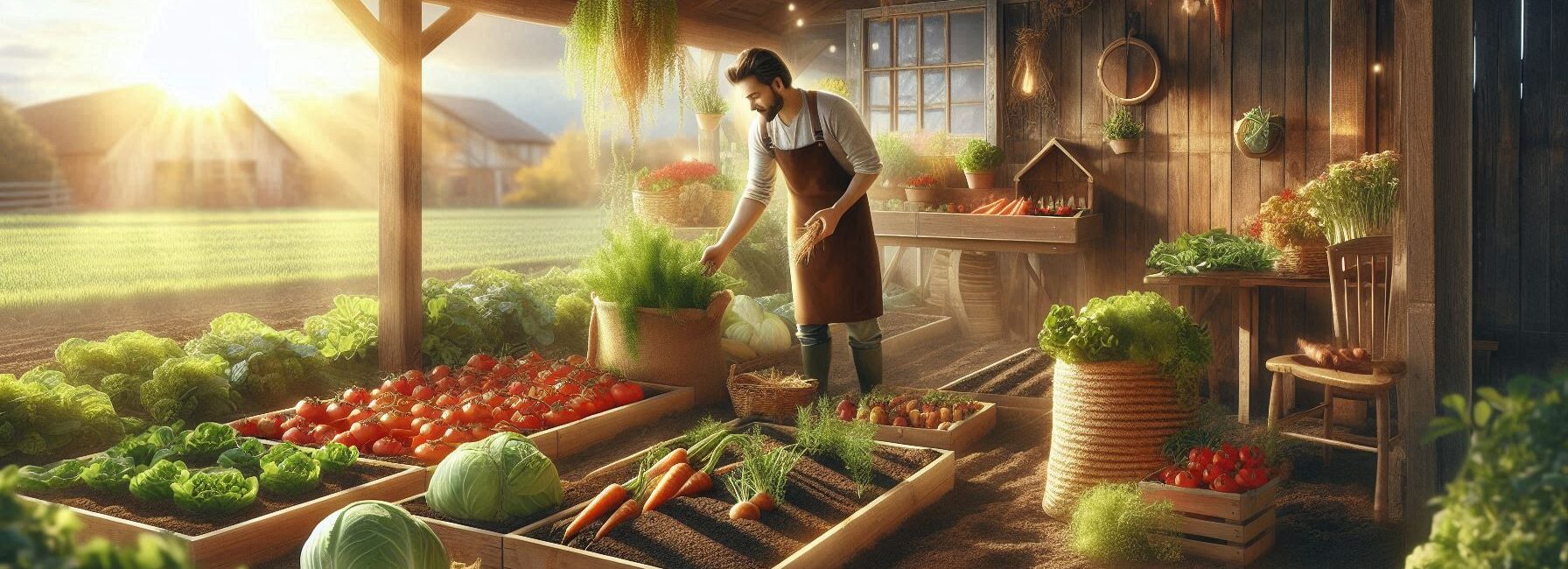Please Note: This post may contain affiliate links. If you click one of them, we may receive a commission at no extra cost to you. As an Amazon Associate, I earn from qualifying purchases.
Last Updated on November 2, 2025 by Kevin Collier
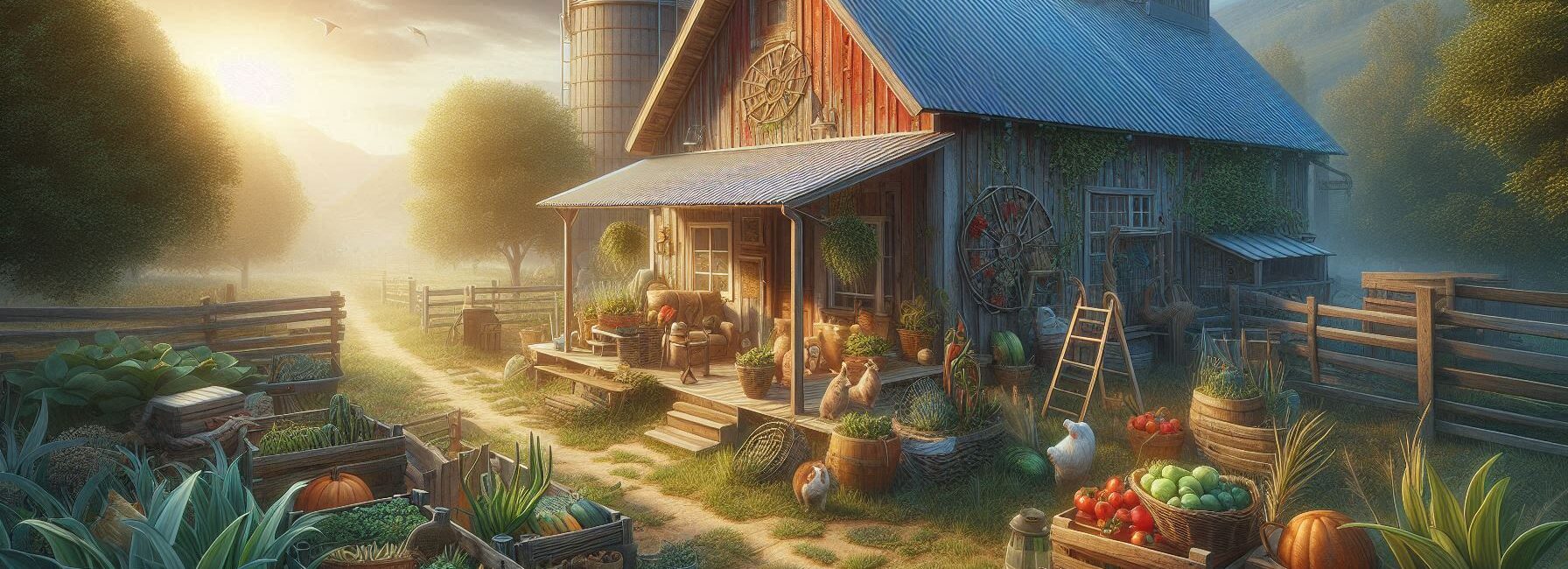
Top Takeaways and Key Concepts
– Start small by growing herbs or vegetables in containers to gain initial homesteading experience.
– Research local resources and communities for support and information on homesteading practices.
– Learn basic skills like cooking, preserving food, and gardening to boost self-sufficiency.
– Volunteer or attend workshops to gain hands-on experience and connect with experienced homesteaders.
– Keep a journal to track progress, challenges, and insights as you develop your homesteading skills.
So, you've decided to jump into homesteading. Yay! That’s a big deal. You’re about to dive into a world that mixes adventure, a bit of science, and so much fun.
But let’s be real. Starting this can feel like trying to juggle flaming torches while riding a unicycle. Super exciting! A little scary, too. I mean, who wouldn’t feel a bit nervous, right?
No need to panic! You’ve got a friend here—ready to help you tackle those first steps.
Think about what you want to do first. Maybe it’s growing veggies or raising chickens. It’s like planting a little dream seed and watching it grow. But choose something simple. Start with easy plants like tomatoes or herbs. They’ll give you a great boost of confidence!
Let’s not forget about space. If you don’t have a huge backyard, that’s okay! You can even start with pots on your balcony. A few little herbs can make a salad feel fancy. Plus, it’s fun to watch them grow.
Water is huge too. Think of it like giving your plants a little drink after a long day. Make sure you have a good watering can. Easy-peasy. Just don’t accidentally water your neighbor’s flowers—oops!
Now, let’s chat about animals. Chickens can be fun. They’re like little feathery pets that also give you breakfast. Just remember, they can be a bit noisy and love to roam. It’s a good idea to make sure they have a safe space to hang out.
Have a plan, too. Write down what you want to do. It doesn’t have to be fancy. Just a simple list can make things feel less chaotic. Check things off as you go. It feels great!
*** Shop for Survival Gear - Tools - Kits ***
Survival Gear - Bags and Backpacks - Knives - Boots/Footwear - Communication
Outdoor Cooking - Gloves - Hydration - Dry Boxes - Water Filtration Systems
Tents - Sleeping Bags - First Aid Kits - Multi-Tools - Flashlights - Fire Starters
Navigation - Survival Food - Night Vision - Headlamps - Stun Guns - Binoculars
Sometimes, you'll make mistakes. That’s totally normal. Even the experts have beginner days. Just laugh it off. You’re learning, right? If a plant doesn’t grow, you can try again. Think of it as a little science experiment.
Remember, it’s all about enjoying the process. Take a moment to watch the sunset over your little garden. Feel that peaceful vibe? That’s part of the joy of homesteading!
You’re in for a wild ride. Embrace the fun craziness of it all. So, get ready to dig in and have a blast! You’ve got this. 🥳🌱✨
Understanding What Homesteading Really Means
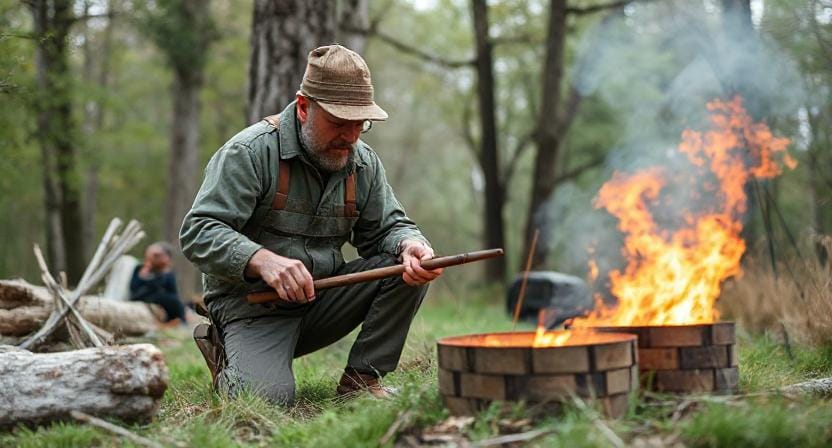
First things first: what is homesteading? To put it simply, it’s about living self-sufficiently and making the most of your land—whether it’s an acre in the countryside or a small balcony in an apartment (yes, we’re counting herbs as a crop).
Think of it as combining survival skills with a dash of eco-friendliness and maybe some gardening magic thrown in for good measure.
Interestingly enough, many people assume that homesteaders are all rugged individuals who can build log cabins from scratch while singing folk songs. While that sounds charming, the reality is often more like “I just Googled how to plant tomatoes.” And guess what? That’s perfectly fine! Everyone starts somewhere.
So, whether you're dreaming of chickens scratching around your yard or envisioning fresh veggies straight from your garden, understanding the basics will set you up for success.
Starting Small: The Key to Success
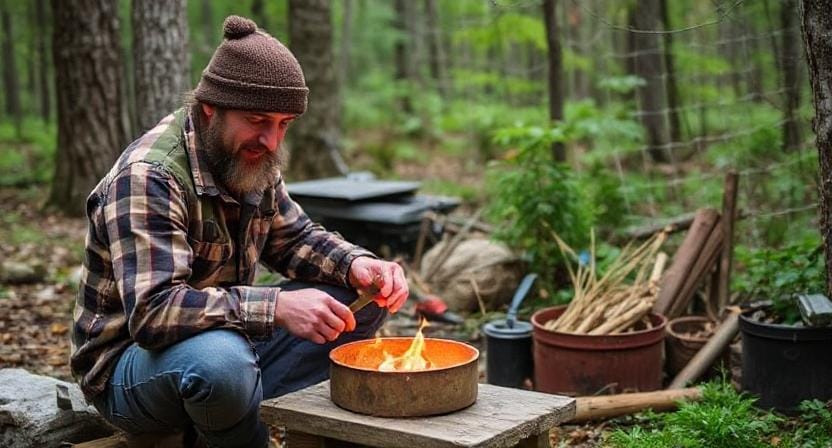
If there’s one piece of advice I can give you, it’s this: start small! Trying to turn your backyard into an organic farm overnight is about as realistic as expecting your cat to stop knocking things off tables. Instead, begin with one or two projects that pique your interest.
Maybe you want to grow some herbs on your windowsill or try container gardening if space is tight. Herbs like basil and mint are forgiving and add pizzazz to any meal—not to mention they smell delightful! Once you get comfortable with these smaller tasks, gradually expand into larger endeavors like vegetable gardens or fruit trees.
Learn by Doing (and Failing)
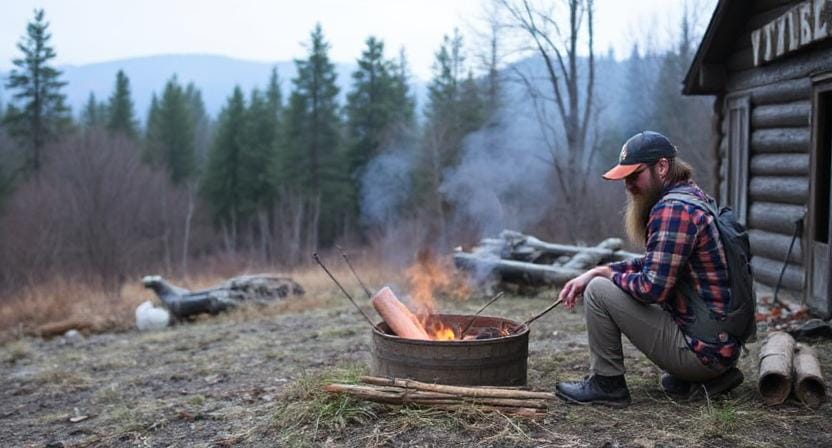
Let me tell you something important: failure is going to happen—and that's okay! In fact, it's practically mandatory if you're serious about homesteading.
I remember my first attempt at growing tomatoes; they ended up looking less like plump fruits and more like sad green blobs clinging desperately to life. It was heartbreaking but also hilarious when I realized my watering technique resembled someone trying out for a water ballet competition!
The beauty of learning by doing means every mistake becomes an opportunity for growth (not unlike those sad tomatoes). Did your seedlings die because they got too much sun? Welcome aboard the “I Overwatered Club!” Did pests munch on your prized plants?
Join me in plotting revenge against aphids (just kidding—let's stick with organic solutions). Each setback teaches valuable lessons that will ultimately lead you closer to becoming a homesteading pro.
Connect with Fellow Homesteaders
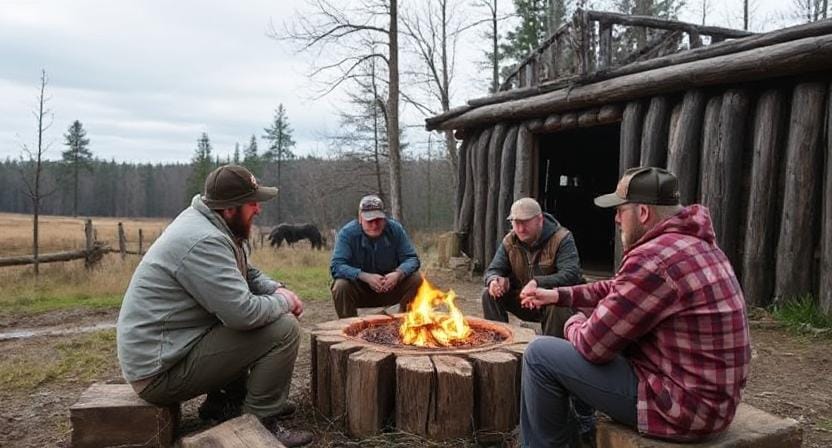
Don't try to accomplish things alone when it comes to learning experiences! Getting in touch with other homesteaders can give you a lot of help and information.
Having support from others makes everything easier, whether it's joining local farming clubs or online forums with other people who want to start a homestead and exchange advice and stories of their own struggles and successes.
It's interesting that social media sites are full of lively groups that are eager to welcome new members. People share everything from cute chicken pictures and ideas for DIY chicken coops to their greatest gardening tips, like how to keep succulents alive.
If you trust me, you'll stay motivated on this trip, even when that annoying raccoon attempts to steal your compost!
Research Before You Leap
Now before diving headfirst into any project—especially ones involving animals or significant investments—take time for research. Knowledge truly is power when embarking on this exciting path toward self-sufficiency!
Look up resources such as books about gardening techniques specific for beginners or guides on raising chickens without losing sanity (spoiler alert: it involves lots of patience).
YouTube has become an incredible treasure trove where experienced homesteaders share tutorials ranging from building raised beds out of recycled materials (hello budget-friendly!) all the way through preserving food after harvests—you know—the stuff nobody tells you until it's too late!
Celebrate Your Progress
Finally—and perhaps most importantly—celebrate every win along the way! Maybe you've harvested one perfect tomato after weeks spent nurturing those plants or successfully made jam from berries picked at a local farm; whatever it may be deserves recognition!
Homesteading isn’t just about surviving; it's also about enjoying life while embracing new challenges together—with occasional laughter sprinkled throughout because let's face it: nothing bonds people quite like shared disasters over failed crops!
Starting down this road may feel daunting initially—but remember: every expert was once a beginner who didn’t have all their ducks lined up yet…or maybe they did line them up only for them all run away during feeding time!
Frequently Asked Questions
Is homesteading possible without previous experience?
Yes, beginners can start with small projects like container gardening or basic food preservation to gradually build skills.
Do I need a large piece of land to start homesteading?
No, many people start with small spaces such as patios, balconies, or small yards using containers and simple garden setups.
What skills are most useful for new homesteaders?
Basic gardening, food preservation, cooking from scratch, and understanding simple resource management are helpful.
Should I join a homesteading community or group?
Yes, connecting with others through clubs, online groups, or local workshops provides support, guidance, and inspiration.
Can volunteering help me learn homesteading faster?
Volunteering on farms or attending workshops gives hands-on experience and real-life examples to apply at home.
Why is journaling recommended for new homesteaders?
Keeping notes helps track progress, challenges, planting dates, and what methods work best in your environment.
Is it normal to make mistakes while learning homesteading?
Yes, mistakes are expected and often teach you more than successes as you develop practical skills over time.
Suggested Resources:
Homestead Honey
https://www.homestadhoney.com
The Prairie Homestead
https://www.theprairiehomestead.com
Modern Farmer
https://modernfarmer.com

Kevin Collier is a seasoned survivalist and expert in prepping and homesteading, contributing to WiseSurvive.com. With a deep-rooted passion for self-sufficiency and outdoor survival skills, Kevin shares practical advice, strategies, and resources to help individuals prepare for any challenge. His informative articles cover a range of topics, from essential survival techniques to sustainable living practices, empowering readers to thrive in any situation. Whether you're a novice or a seasoned prepper, Kevin's insights will inspire you to take charge of your readiness and build resilience for the future.


